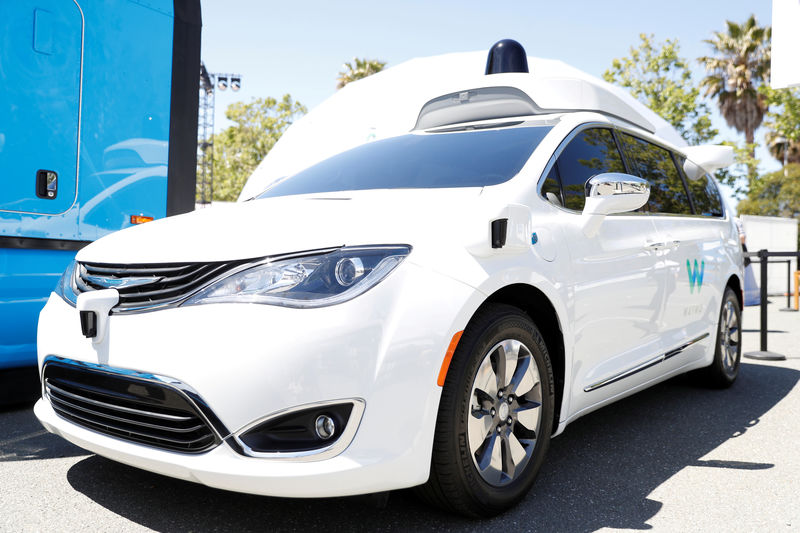By Stephen Nellis and Alexandria Sage
SAN FRANCISCO (Reuters) - Apple Inc (NASDAQ:AAPL) has sharply increased its efforts to test self-driving cars on public roads but lags far behind market leader Waymo on a key safety metric, according to data released on Wednesday by the California Department of Motor Vehicles.
Apple, which has kept details of its self-driving program under wraps, put in 79,745 miles (128,337 km) of testing in California in 2018, still far short of 10 million miles of testing on roads around the world by Alphabet (NASDAQ:GOOGL) Inc's Waymo. But the miles put in by Apple last year far surpassed the 838 miles of testing that the iPhone maker did the previous year.
The data was part of California regulators' annual so-called "disengagement reports," which track how often a human safety driver must intervene to take control from a self-driving system during testing on public roads.
In the complex world of self-driving technology where road-test data is a closely guarded secret, the number of miles between disengagements has become a key metric for industry watchers to indicate how far any player's technology has progressed.
Waymo led the industry with 11,017 miles between disengagements in 2018, a 50 percent improvement from 5,595 miles the year before. Waymo said the improvement came despite driving 1.2 million miles in California, where roads are much busier than other areas where it is testing vehicles, such as suburban Arizona.
"A lower rate of disengagements shows that our cars are getting better at recognizing and handling a wide variety of driving situations, including 'edge cases' across the cities we’ve been testing in: those unusual situations that a human driver might see only once (or never) in a lifetime of driving," Waymo said in blog post.
Apple, by contrast, came in dead last, logging just over one mile per disengagement. In a letter to regulators, Apple said its approach to reporting disengagements had been "conservative" and that its report was "over-inclusive."
Apple said it changed how it categorized disengagements starting in July 2018. Since then, the company said it had driven about 2,000 miles between what it calls "important disengagements," which it defined as "situations that might have resulted in a safety-related event or a violation of the rules of the road." At least two of those "important disengagements" happened when other human drivers hit its test vehicles, Apple said.
Apple declined to comment beyond its public documents, but even its re-worked disengagement numbers put it below other firms testing the technology.
General Motor's Cruise said it had driven 447,621 miles in California autonomously in 2018, with a disengagement every 5,205 miles on average, an improvement over every 1,236 miles last year. Cruise has yet to meet a target it set for early 2018 of driving 1 million miles autonomously per month.
Apple, which has only talked in general terms about its interest in self-driving, is a relative latecomer to the field, having only secured a California permit to conduct testing in 2017.
Last year Apple re-hired Doug Field to work on its self-driving car project, called Project Titan, with longtime executive Bob Mansfield. Field had previously left Apple to become senior vice president of engineering at Tesla (NASDAQ:TSLA) Inc.
Some companies, including Ford Motor (NYSE:F) Co , Tesla Inc, Lyft and German auto supplier Bosch, said they had performed no autonomous testing in California last year.
